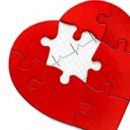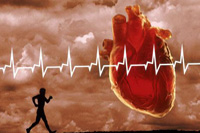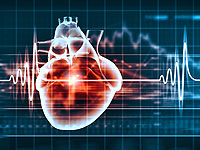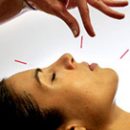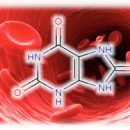According to statistics, it snores every fifth person after 30 years. Often snoring perceived as an unpleasant, but safe sound phenomenon. Unfortunately, it is not. If you have arterial hypertension and you snore, it is possible that in your case one of the causes of arterial hypertension can be snoring or obstructive sleep apnea syndrome.
Content
What is obstructive sleep apnea syndrome?
 This condition is often found in chronically snoring people and manifests itself by periodic stops of breathing in a dream. Sometimes it can be observed up to 400-500 stops of breathing per night with a total duration of up to 3-4 hours. This leads to a constant lack of oxygen in the night and significantly increases the risk of severe heart rhythm disorders, myocardial infarction, stroke and sudden death in a dream.
This condition is often found in chronically snoring people and manifests itself by periodic stops of breathing in a dream. Sometimes it can be observed up to 400-500 stops of breathing per night with a total duration of up to 3-4 hours. This leads to a constant lack of oxygen in the night and significantly increases the risk of severe heart rhythm disorders, myocardial infarction, stroke and sudden death in a dream.Basic signs:
Snoring and obstructive sleep apnea syndrome as the cause of arterial hypertension
In most healthy individuals, as well as patients with hypertensive disease (arterial hypertension, arterial hypertension) against the background of drug antihypertensive therapy or without it, blood pressure during sleep is gradually decreasing by about 10-20% and returns to the initial level after awakening. In patients with obstructive sleep apnea syndrome and / or strong snoring, arterial pressure profile during sleep is usually changed. Arterial pressure in such patients gradually rises overnight and often reaches its maximum in the morning hours. What explains the increase in blood pressure during sleep in patients with obstructive sleep apnea syndrome and snoring? Currently, three main reasons are considered:
one.Hypoxia (lack of oxygen) during sleep
The fact is that in patients with obstructive sleep apnea syndrome, as a result of respiratory stops during sleep, which is usually from 10C to 2 minutes, the oxygen does not come to the lungs. One of the compensatory mechanisms by which the body is trying to fight the lack of oxygen is an increase in blood pressure. An increase in blood pressure leads to the fact that a larger amount of blood begins to pass through the lungs and, accordingly, the chances of capturing more oxygen increase. However, if the pause in respiration is delayed, then in the lungs there is less and less oxygen and the body needs more and more increase blood pressure. Once, breathing resumes and restores the oxygen content in the blood, there is a decrease in blood pressure. But, during the night, in patients with obstructive sleep apnea syndrome, there are several hundred respiratory stops, and since they follow one after another, then the blood pressure does not have time to return to the initial level. There is a gradual increase in blood pressure overnight and, sometimes, at night or in the early morning hours, hypertensive crisis is even developed. The same thing happens in patients with snoring. Part of the oxygen still enters the lungs, since in this case the respiratory tract is not completely blocked. However, it is also lacking for adequate to ensure all the functions of the body and blood pressure also begins to increase.
2. Irregular pressure fluctuations
During the obstructive apnea, the respiratory stop is associated with obstruction (blockage) of the respiratory tract at the level of the alignment. However, the chest and abdominal muscles continue to work with great effort, thereby excessively stretching the chest. Due to the increase in the amount of the chest and the absence of a message with atmospheric air, the pressure in the chest cavity begins to decline, sometimes reaching the magnitude of minus 100 cm of water. Art. Effect occurs "Furov". Blood from the extremities begins to be sinking into the chest cavity, thereby increasing the pressure in the right parts of the heart A, in the subsequent, and in the left departments. Effect occurs "pseudo-boilessia", T.E. Heart overload with overpowering blood with a normal total circulating blood. In connection with the overload of the heart and, in particular, the right atrium excess blood is also occurring the increased production of sodium-ethical hormone.
3. Activation of the sympathetic nervous system (stress)
Each respiratory stop or excess respiratory effort during sleep is a powerful stimulus to activate the brain. After all, if a person woke up, neither snoring, nor stops of breathing he no longer arise. Thus, the body is trying to wake up the brain almost at each respiratory stop. After all, if he does not wake up, the respiratory stop can stretch at an arbitrarily for a long time and then the body will just die. Each microproprotement of the brain is accompanied by activation of the sympathetic nervous system and emissions to the blood of hormones (adrenaline, norepinephrine) increase blood pressure. Thus, the third arterial pressure increase mechanism is activated.
Hypertension: why treatment does not help?
Thus, if you have arterial hypertension (arterial hypertension) and you snoring, it is possible that in your case one of the causes of arterial hypertension (arterial hypertension) can be snoring or obstructive sleep apnea syndrome. In this case, ordinary drug therapy may not have a full effect on blood pressure level. In this case, treatment must include:
one. Conducting polysomnography (polysomnographic study).
2. Conducting blood pressure monitoring

